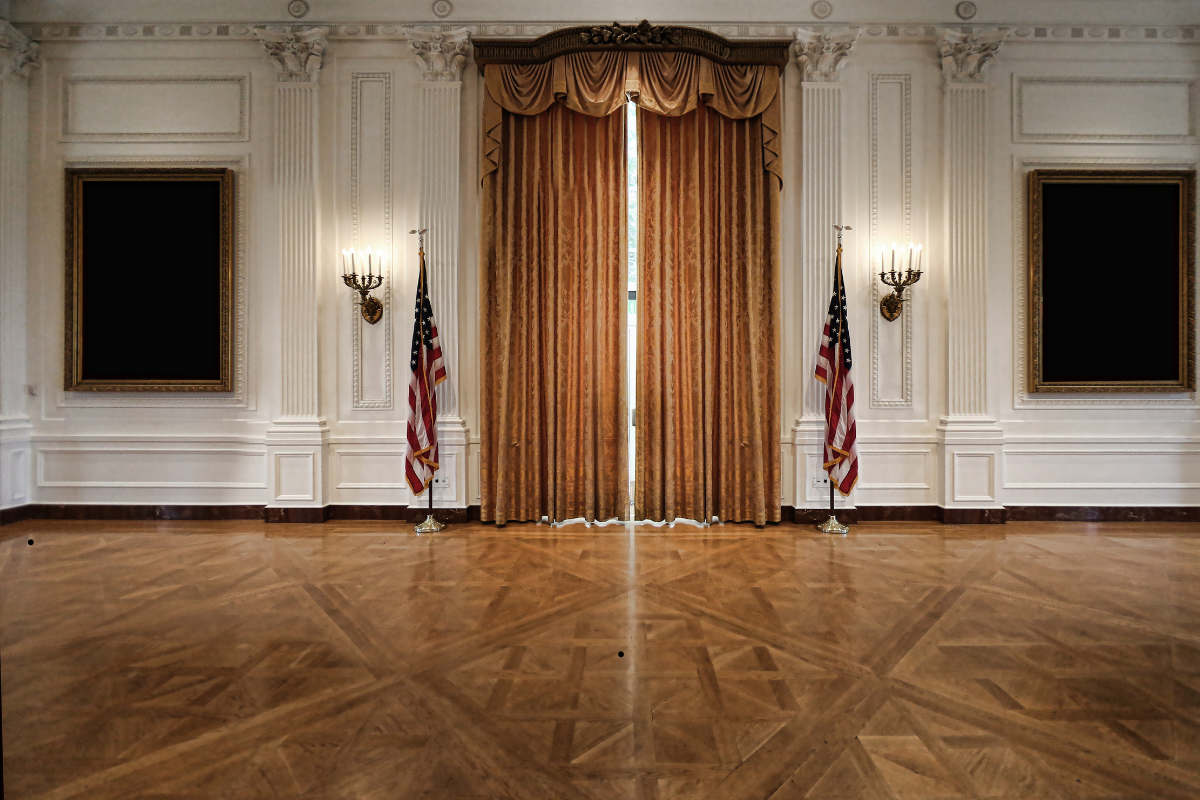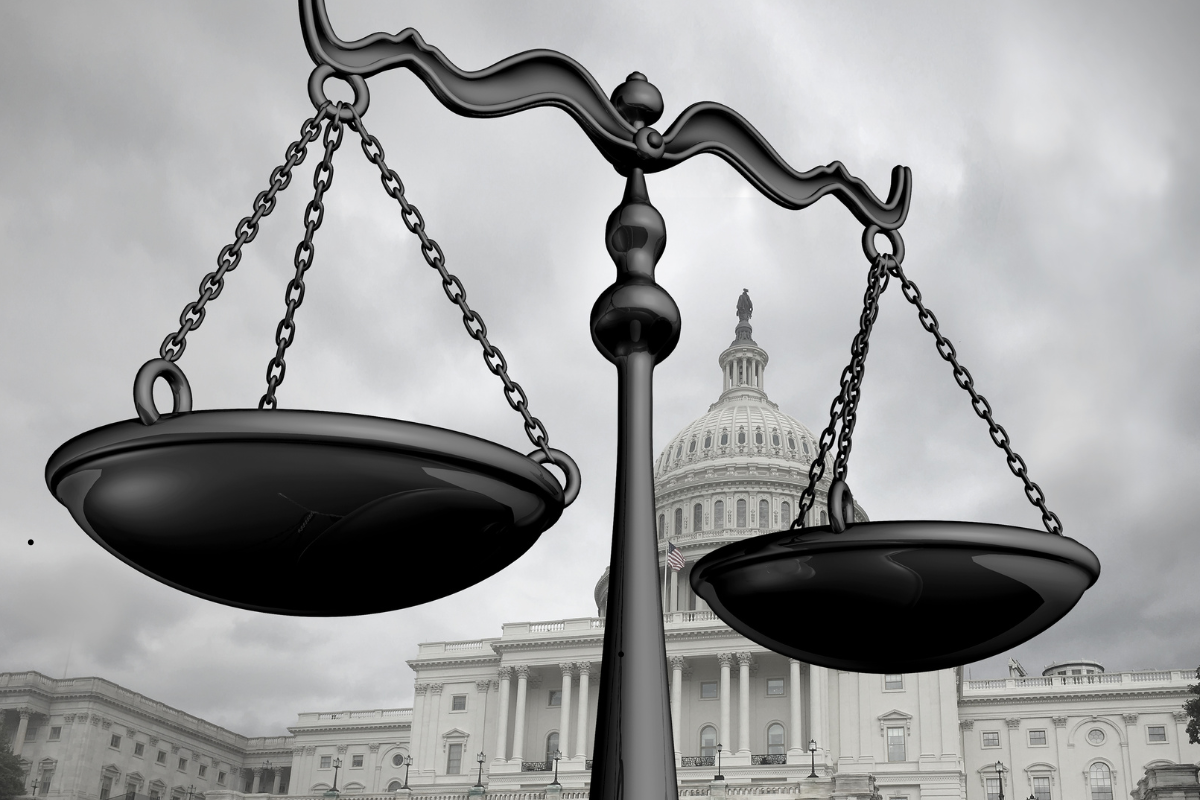Federalist 54 Part 1
No issue occupied more time nor generated more heated disagreement at the Constitutional Convention than did that of fixing the nature and number of representatives. Bound up in this question was that of interest and which interests should prevail. The framers of the Constitution had various models to play with: that under The Articles of Confederation, those of the states, and the system back in England. Even after the committees had reported out language to the whole convention, debates over the language and ideas still threatened to bring the proceedings to an unhappy end.
The most disputed parts found their final form in Article 1, Section 2, Clause 3:
Representatives and direct Taxes shall be apportioned among the several States which may be included within this Union, according to their respective Numbers, which shall be determined by adding to the whole Number of free Persons, including those bound to Service for a Term of Years, and excluding Indians not taxed, three fifths of all other Persons. The actual Enumeration shall be made within three Years after the first Meeting of the Congress of the United States, and within every subsequent Term of ten Years, in such Manner as they shall by Law direct. The Number of Representatives shall not exceed one for every thirty Thousand, but each State shall have at Least one Representative; and until such enumeration shall be made, the State of New Hampshire shall be entitled to chuse three, Massachusetts eight, Rhode-Island and Providence Plantations one, Connecticut five, New-York six, New Jersey four, Pennsylvania eight, Delaware one, Maryland six, Virginia ten, North Carolina five, South Carolina five, and Georgia three.
The authorship of Federalist 54 is also disputed, but often attributed to Madison. Certainly it captures some of Madison’s arguments at the convention. When people teach the Constitution they often point out that the New Jersey Plan favored the interests of the smaller states while the Virginia Plan those of the larger, resulting in “The Great Compromise” resulting in a bicameral legislature, one chamber’s number determined by population and the other the equal suffrage of the states. There is enough to that thumbnail sketch of history to justify teaching it but, as is often the case, such telling obscures much of the complexity. Madison, for example, consistently insisted at the convention that the real division was not between large states and small states, but rather between competing interests — economical and cultural — that didn’t track neatly along borders.
Representation Without Taxation
The first thing to catch our attention in this clause is that the number of representatives is tied directly to the issue of taxation. The sense among many delegates was that representation should be tied immediately to wealth, in part on the assumption that people who were footing the bill for the enterprise should have a greater say in its operations.
No one at the convention, or after, fought this idea more vigorously than did Maryland delegate Luther Martin, whose verbosity was no doubt encouraged by his fondness for drink. Madison in his notes typically avoided any jibes at fellow delegates, but when it came to the debates over this clause he couldn’t help but observe that on June 27 Martin “contended at great length and with great eagerness” for equal state representation, speaking for more than three hours before he exhausted himself. Martin resumed his discourse the next day until he delivered, at last, “the substance of the residue of his discourse which was delivered with much diffuseness & considerable vehemence.”
Martin certainly defended the idea of the sovereignty of the states and their claim to equal representation remarking, Madison noted, that “the language of the States being Sovereign & independent, was once familiar & understood; though it seemed now so strange & obscure.” Martin even more adamantly rejected the idea that connecting representation to wealth — again, an idea strongly advocated for by delegates such as Rufus King and Gouvernor Morris, and included in the language of the clause until finally removed by vote as the convention entered its final days — was at all consistent with republican or liberal principles. In his Genuine Information Martin argued that a man who had ten times the wealth of other men could impose his will upon nine whose cumulative wealth did not equal his. Whatever else our system aspired to, it ought not aspire to plutocracy.
Property
Wealth was largely tied to property, many delegates repeating Locke’s claim, and the implicit claim of The Declaration of Independence, that preservation of property was the chief purpose of government. Since government itself results from the interests of property, then propertied interests ought to determine the structure and operations of government.
What would count as property? Locke had argued that once you have mixed your labor with material than the resulting product is “yours.” The stream may belong to all men, but once you dip your bucket into it you become entitled to the contents of the bucket. Land may be available to all, but plowing and planting and harvesting a portion of it makes the product yours. We alone are entitled to the “fruits” of our labors, and governments are established to guard those fruits against the thieving intentions of others, or against the limits of spoilage.
My leftist colleagues often disparaged the idea of property rights having some kind of authoritative status. I would typically point out to them they possessed a title to their house and on whose doors they put locks, and they typically locked their Prius’ or padlocked their bikes as well. My colleagues might not have liked Lockean liberalism, but they were hesitant to deny “thou shalt not steal” was one of the Ten Commandments.
One need not be a Lockean, however, to defend the importance of property rights, nor does such defense commit one to its unequal distribution. Indeed, Brutus and Cato, both defenders of property rights, fretted about what its unequal distribution would mean for republican virtue. Even if one accepts such inequitable distribution as a necessary consequence of allowing people to dispose freely of their property, that acceptance does not commit one to the idea that therefore the wealthy should have a greater say in the operations of government.
Inequality
Granted, one can see how such disparities might evolve. I have lived in West Michigan for the bulk of my life and have contributed something, I hope, to the well-being of the community. But I employ no one and I have built nothing. Some of the better-known families in the area, on the other hand, have employed thousands of people and have built hospitals and entertainment centers and — God bless them! — bars. I would expect that our local representative would attend a bit more to those interests than to mine.
And this seems to be part of the argument advanced by those at the Convention who advocated for wealth as a basis for representation. Martin and others, however, vigorously contended that the material distinction could not and should not result in a formal one. In other words, once behind the curtain of the polling booth, all men had to be considered equally, just as, Martin argued, they were in the state of nature prior to the distortions of property and wealth. The rich had their advantages already: giving them more formal power in the system of representation would destroy any hopes for republican government. One man, one vote, as the Supreme Court put it.
The Slavery Question
The question of the role of wealth in determining representation redounded also to the most contentious issue of the time: slavery. Were slaves to be counted as property or as persons? Rufus King, according to Madison’s notes, “had always expected that as the Southern States are the richest, they would not league themselves with the Northn. unless some respect were paid to their superior wealth. If the latter expect those preferential distinctions in Commerce & other advantages which they will derive from the connection they must not expect to receive them without allowing some advantages in return. Eleven out of 13 of the States had agreed to consider Slaves in the apportionment of taxation; and taxation and Representation ought to go together.”
If wealth were to be the basis of representation, and property alone the basis of wealth, and chattel slaves regarded as property, the interests of the southern states would prevail over those of other states and regions. Eldridge Gerry of Massachusetts, for example, insisted repeatedly throughout these debates that he would oppose any measure that worked to the disadvantage of the “Atlantic states.” Madison likewise insisted that the real division was not between big states and small ones but between northern (free) states and southern (slaveholding) ones. Was there a way to accommodate the interests of both?
Southerners, in order to buttress their representation in Congress, wanted slaves fully counted not simply as “inhabitants” but as persons. Certainly this was an expression of “interest,” but also a counter to the interests of northern states who, in the absence of any countervailing forces, would be able to use Congress to advance their economic interests to the disadvantage of other regions. In retrospect the compromise strikes us as unseemly, but it was not the job of the Constitutional Convention to solve the issue of slavery; their job was to produce a plan for a system of government they thought sufficiently acceptable that it could get ratified. There was no way to accomplish that without compromise, which is, after all, in the nature of politics.
Hamilton had set the stage at the Convention by moving that only “free inhabitants” should be counted for the purposes of representation. The language evolved over months of deliberation, and in the process many delegates stated their opposition to slavery, suggesting the impossibility of compromise on the matter. George Mason had tried to argue that slaves constituted a different species of property: since productive labor produced property, and slaves were engaged in productive labor, they could not be considered property in the usual sense. And since they operated largely as tools in the hands of another, they could not be considered persons in the usual sense. Gouvernor Morris responded by moving “to insert ‘free’ before the word ‘inhabitants.’ Much he said would depend on this point. He never would concur in upholding domestic slavery. It was a nefarious institution--It was the curse of heaven on the States where it prevailed.” Other delegates such as James Wilson and Rufus King and Roger Sherman denounced the institution of slavery in the strongest moral terms, even while acknowledging it was not a problem they could immediately solve.
Morris again:
“Upon what principle is it that the slaves shall be computed in the representation? Are they men? Then make them Citizens & let them vote? Are they property? Why then is no other property included? The Houses in this City (Philada.) are worth more than all the wretched slaves which cover the rice swamps of South Carolina. The admission of slaves into the Representation when fairly explained comes to this: that the inhabitant of Georgia and S. C. who goes to the Coast of Africa, and in defiance of the most sacred laws of humanity tears away his fellow creatures from their dearest connections & damns them to the most cruel bondages, shall have more votes in a Govt. instituted for protection of the rights of mankind, than the Citizen of Pa or N. Jersey who views with a laudable horror, so nefarious a practice.”
Multiple votes were taken on the ⅗ clause, and perhaps Roger Sherman summed up the idea of many at the Convention: Mr. Sherman regarded the slave-trade as iniquitous; but the point of representation having been Settled after much difficulty & deliberation, he did not think himself bound to make opposition.”
Wealth, property, and slavery were not the only issues on the table, however. The proportion of representatives to voters also sparked much debate, an issue I will address in next week’s second part.
Director of the Ford Leadership Forum, Gerald R. Ford Presidential Foundation
Related Essays




